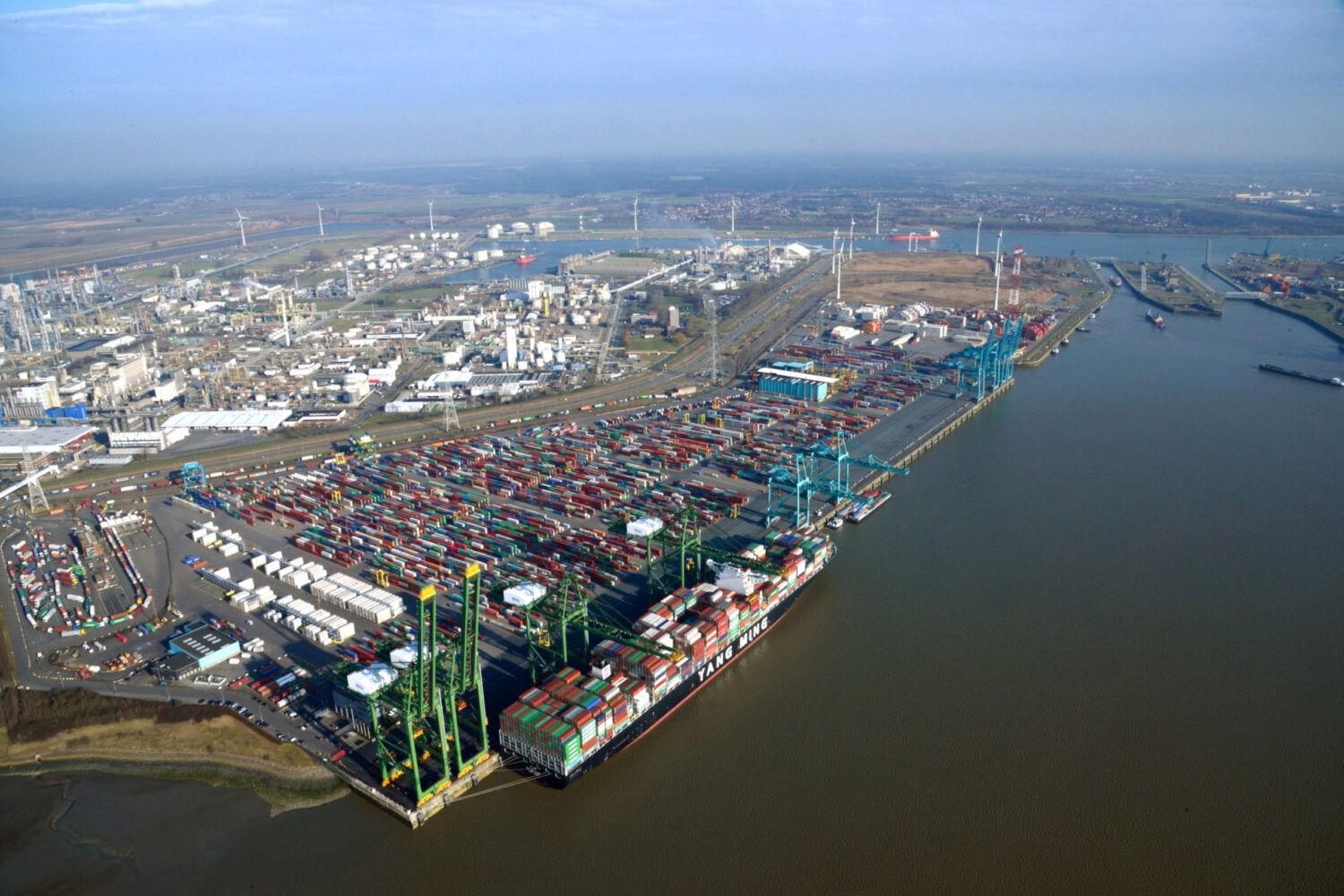Geopolitical tensions and the slowdown in economic growth had an impact on throughput at the port of Antwerp-Bruges. The decline amounted to -5.5%.
Total cargo throughput amounted to 271 million tons. Container throughput fell by 7.2% to 12.5 million TEU. However, due to the merger of the two ports, the market share in the container segment rose slightly by 0.6% to 30.2%, despite the difficult environment in the North Range between Hamburg and Le Havre. [ds_preview]
Throughput of liquid bulk fell by 2.1% in 2023. Fuel throughput increased due to strong growth in diesel and kerosene, while gasoline and heating oil declined.
The chemical sector is under pressure across Europe due to high energy, raw material and labor costs and lower demand. This led to an 8.1% decline in the throughput of chemicals. The throughput of biofuels also fell, and the throughput of LNG also remained below the level of the previous year, when as much as possible was still being delivered during the energy crisis.
Antwerp also loses general cargo and RoRo volumes
The throughput volume of conventional general cargo has normalized to pre-Covid-19 levels. Compared to 2022, total throughput has fallen by 18.8%. Due to the decline in European steel production and lower demand, throughput of steel, the most important product group in conventional general cargo, fell by 16.9%.
Total roll-on/roll-off traffic recorded a slight decline of 2.1%. Due to the increased sales of new vehicles, the handling of transport material (number of units) increased. In 2023, 3.56 million new vehicles were handled, which corresponds to an increase of 9.0% compared to the previous year.
The handling of unaccompanied cargo (excluding containers) on RoRo ships also decreased slightly (1.5%). More than half of this traffic relates to the United Kingdom and is down (-4.9%), while traffic to Ireland is up sharply (+17.9%) and Scandinavian traffic remains stable.
The dry bulk good segment fell by 13.9% compared to the previous year. Demand for coal, which was high in 2022 due to the energy crisis, has fallen sharply since then. Fertilizers, which were already in decline last year due to the sanctions against Russia and the rise in fertilizer prices, among other factors, also recorded a further decline.













